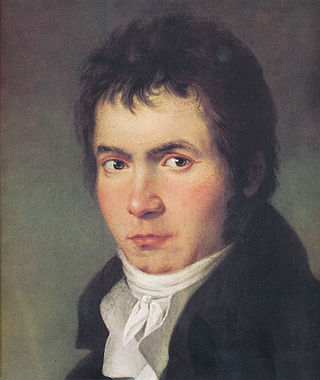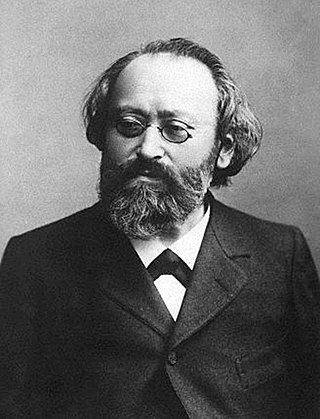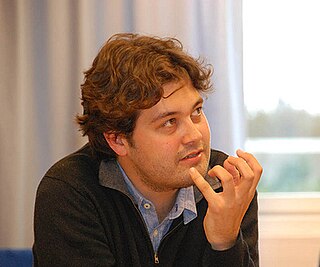Related Research Articles

The Violin Concerto in D major, Op. 61, was written by Ludwig van Beethoven in 1806. Its first performance by Franz Clement was unsuccessful and for some decades the work languished in obscurity, until revived in 1844 by the then 12-year-old violinist Joseph Joachim with the orchestra of the London Philharmonic Society conducted by Felix Mendelssohn. Joachim would later claim it to be the "greatest" German violin concerto. Since then it has become one of the best-known and regularly performed violin concertos.

Sir Arthur Somervell was an English composer and educationalist. After Hubert Parry, he was one of the most successful and influential writers of art song in the English music renaissance of the 1890s–1900s. According to Michael Hurd, his most important work is found in the five song cycles, particularly his settings of Tennyson in Maud (1898) and Housman in A Shropshire Lad (1904).

Andrew Manze is a British conductor and violinist, noted for his interpretation of Baroque violin music.

Max Bruch's Violin Concerto No. 1 in G minor, Op. 26, is one of the most popular violin concertos in solo violin repertoire and, along with the Scottish Fantasy, the composer's most famous work. It has been recorded often.
The Piano Concerto No. 4 in D minor, Op. 70, by Anton Rubinstein is a Romantic concerto that was once highly esteemed and was in the repertoire of the Russian and Polish piano virtuosos Sergei Rachmaninoff and Ignacy Jan Paderewski.
Aram Khachaturian's Piano Concerto in D-flat major, Op. 38, was composed in 1936. It was his first work to bring him recognition in the West, and it immediately entered the repertoire of many notable pianists.

Pyotr Ilyich Tchaikovsky's Piano Concerto No. 3 in E-flat major was at first conceived by him as a symphony in the same key. But he abandoned that idea, jetisoned all but the planned first movement, and reworked this in 1893 as a one-movement Allegro brillante for piano and orchestra. His last completed work, it was duly published as Opus 75 the next year, after he died, but given by publisher Jurgenson the title "Concerto No. 3 pour Piano avec accompagnement d'Orchestre".
Frederic Cliffe was an English composer, organist and teacher.
Benjamin James Dale was an English composer and academic who had a long association with the Royal Academy of Music. Dale showed compositional talent from an early age and went on to write a small but notable corpus of works. His best-known composition is probably the large-scale Piano Sonata in D minor he started while still a student at the Royal Academy of Music, which communicates in a potent late romantic style. Christopher Foreman has proposed a comprehensive reassessment of Benjamin Dale's music. Dale married one of his students, the pianist and composer Kathleen Richards in 1921.
Martin Roscoe is an English classical pianist. He performs as a concerto soloist, as a recitalist and as a chamber musician.

Lawrence Power is a British violist, born 1977, noted both for solo performances and for chamber music with the Nash Ensemble and Leopold String Trio.

The concerto for two harpsichords in C minor, BWV 1060, is a concerto for two harpsichords and string orchestra by Johann Sebastian Bach. It is likely to have originated in the second half of the 1730s as an arrangement of an earlier concerto, also in C minor, for oboe and violin. That conjectural original version of the concerto, which may have been composed in Bach's Köthen years (1717–1723), is lost, but has been reconstructed in several versions known as BWV 1060R.

Jules Massenet's Piano Concerto is a 1902 work for piano solo and orchestra. It is scored for a typical-sized ensemble of the time. The concerto was performed in 1903 by Louis Diémer at the Conservatoire de Paris. After the premiere, it quickly fell into obscurity and is seldom heard today.
The Piano Concerto in C minor, Op. 12, is a three-movement composition for piano and orchestra by French composer Gabriel Pierné. The piece was completed in early 1887, shortly after Pierné returned to Paris from a three year stay in Rome.
André Jolivet wrote his first Flute Concerto in 1949. It is scored for solo flute and strings and was premièred on 24 January 1950 by soloist Jean-Pierre Rampal. Jolivet wrote a concerto for flute and percussion in 1965.
The Violin Concerto in G minor is a composition for Violin and orchestra by Sir Arthur Somervell. In addition to being the composers second work for these forces following the Concertstück he had composed in 1913, it was also the composer's last major orchestral work.
The Piano Sonata No. 3 in F minor, Op. 14, called "Concerto for piano without orchestra" by Tobias Haslinger, was composed by Robert Schumann in 1836 and dedicated to Ignaz Moscheles, to whom in a letter he comments "what crazy inspirations one can have". Liszt believed that the work was rich and powerful. In 1853 Schumann revised the work and added a Scherzo as a second movement, which the performer could choose to play, or not play. In 1861 it was released into the hands of Johannes Brahms.

The Piano Concerto No. 6 in C major, Op. 123, by Ferdinand Ries was composed around 1806. Composed in a proto-Romantic style, similar to the concertos of Johann Nepomuk Hummel, it also shows evidence of the influence of Beethoven's C minor Piano Concerto, Op. 37 which Ries had performed at his public debut in 1804.
The Piano Concerto No. 8 in A-flat major, Op. 151 "Gruss an den Rhein", by Ferdinand Ries was composed around 1826 and published in 1829 by Simrock. While still showing the structural influence of Beethoven's piano concertos, the writing for the piano is more akin to that of later composers such as Chopin, Mendelssohn & Schumann.

The Piano Concerto in F minor, Op. 114, is a concerto for piano and orchestra composed by Max Reger in Leipzig in 1910. He dedicated the work to Frieda Kwast-Hodapp, who premiered it in Leipzig on 15 December 1910 with the Gewandhausorchester conducted by Arthur Nikisch. The difficult composition has been rarely performed and recorded. Pianists who have tackled it range from the American Rudolf Serkin, who first recorded it in 1959, to Markus Becker who was the soloist in an award-winning recording in 2017.
References
- Notes
- 1 2 ( Foreman 2011 , p. 3)
- ↑ ( Liang 2012 )
- ↑ ( Passarella 2012 )
- ↑ ( France 2011 )
- ↑ ( Nicholas 2011 )
- ↑ ( Clements 2011 )
- Sources
- Clements, Andrew (August 2011). "Cowen: Concertstück; Somervell: Normandy; Highland Concerto – review". The Guardian . Retrieved 9 May 2015.
- Foreman, Lewis (2011). Somervell & Cowen: Piano Concertos (PDF) (CD). Hyperion Records. CDA67837.
- France, John (October 2011). "Somervell & Cowen Piano Concertos". Musicweb International. Retrieved 9 May 2015.
- Liang, Chang Tou (March 2012). "CD Reviews (The Straits Times, March 2012)". Pianomania Blog (Originally published in the Straits Times.). Retrieved 9 May 2015.
- Nicholas, Jeremy (2011). "Review: Somervell Piano Concerto;Cowen Concertstück". Gramaphone . Retrieved 9 May 2015.
- Passarella, Lee (March 2012). "Review: The Romantic Piano Concerto – Vol. 54 - COWEN: Concertstück; SOMERVELL: Normandy; Piano Con. in A Minor, "Highland"". Audiophile Audition Magazine. Archived from the original on 2015-04-16.